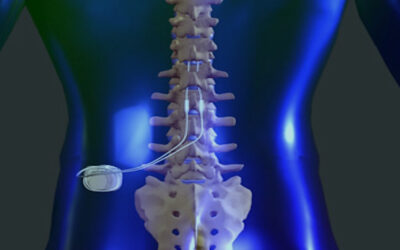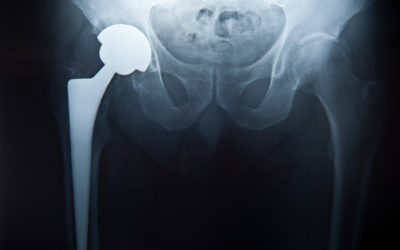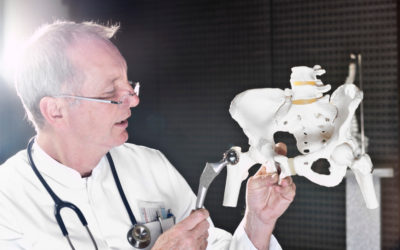Eating or Drinking Before Hip Surgery
It is imperative that you not eat or drink anything after midnight (12:00 AM) the night before hip surgery. Planning hip surgery helps to prevent potential nausea and vomiting from occurring during surgery that could cause complications.
Home Exercises
The first step when planning hip surgery is obtaining crutches or a walker so you can practice walking with these before your surgery. With an arthritic hip or knee joint, exercise may be painful. You may have developed muscle atrophy due to disuse. No special preoperative program is needed. Swimming, water exercises, elliptical and exercise biking are usually the best-tolerated exercises with an arthritic joint.
After your surgery, we will recommend a period of light activity while you start to heal and then allow you to increase progressive exercises. In most cases, muscle atrophy is reversed one year after the surgery. Arthritic joints also become very stiff (loss of motion). There is not much you can do about this prior to surgery.
Physical therapy (PT) has no proven benefit. If the knee gets very stiff prior to surgery this is only partially correctable with extensive postoperative PT. In the hip, on the other hand, motion returns spontaneously without PT and near normal range of motion is recovered by one year postoperative.
Weight Loss and Diet
As you’re planning your hip surgery, losing weight is helpful prior to surgery if you plan far enough in advance. Surgery is technically more complex as obesity increases. If your BMI is greater than 40 (morbidly obese) hip resurfacing is no longer possible; even stemmed total hip replacement is challenging. Risk of postoperative complications including infection, venous thromboembolism (blood clots), fracture, and even cardiac complications is significantly increased. We operate on even the morbidly obese, but you must understand that you are putting yourself at higher risk by going into surgery too heavy.
We recommend weight watchers, a Mediterranean diet and aerobic exercises. You must avoid all forms of sugar, artificial sweeteners and processed carbohydrates (white bread, white rice, regular pasta and potatoes), fried foods and limit animal fats. Whole grains, nuts, limited fruits and healthy plant oils such as olive oil and canola oil, and small quantities of lean meat can be the basis for a healthy, nutritious and extremely tasty diet.
There is now ample evidence that you actually feel more satisfied and less hungry if you eat this type of food than if you consume larger amounts of empty carbs. This not only makes it easier to lose weight, but also this diet reduces your cardiovascular risk. This food also tastes much better than typical American food once you learn how to prepare it properly. Despite their name, Olive Garden does not serve a Mediterranean diet!
Most diet pills and diet programs are unhealthy and/or are a gimmick to take your money. Body fat is essentially a biological battery that stores energy. You must burn more energy than you take in if you want to burn off the energy in the battery and lose weight. It is a simple concept. Anything else that advertisers concoct prays on peoples’ wishful thinking. There is no magic solution. The concept is simple, but achieving sustained weight loss is a difficult task that requires strong will power and usually a willingness to unlearn all the bad dietary advice we have gotten from our culture.
Avoid Overeating After Hip Surgery
Over the last 50 years our industrial food industry has figured out what to do with food to make us subconsciously overeat and thereby increase their sales. Adding salt, sugar, or artificial sweeteners to everything including vegetables and meat, makes us overeat. Highly processed carbohydrates causes rapid breakdown and absorption in our gut after a meal resulting in high spiking blood levels of sugar followed by high insulin output by our pancreas and a sudden crash in our blood sugar levels. This not only damages our pancreas over time and causes diabetes, it makes us crave more food hours after we have just overeaten. Adding fat to food increases its taste to us especially if this is unhealthy animal fat. Trans fats are manufactured from healthy plant fats as a substitute for animal fats, but they have been found to be even unhealthier than animal fats.
Beyond weight loss, a healthy diet would avoid pesticides, genetically modified food, and all animals raised on an unnatural corn diet. Almost all farm-raised animals from chickens, to beef, to fish, are now fed on corn diets that increase their ratio of omega 5 to omega 3 fats that they contain. This makes them unhealthier for us to eat. The solution for this is to eat organic food and grass fed animals and wild fish whenever possible. The cost of these foods is higher, but ultimately the health benefits to our environment and us will be immense if we can force our food industry to change.
Buy the good stuff whenever you can, eventually, as our food industry will be forced to change it is likely that prices will come down. Most people who read this can easily afford to pay even double the price for their food but this is not necessary. Just eating out a few times less will enable most people to buy healthier ingredients to make these healthier foods for themselves. You are what you eat. Most healthcare dollars in the US could be saved if people ate healthy reasonable amounts, exercised regularly, didn’t smoke, and drank alcohol in reasonable amounts.
Medical Evaluation
(at least one month prior to surgery is recommended)
Hip replacement surgery is a major procedure and care must be taken that you are in the best medical condition. You must see your regular medical physician within a few months before your surgery. He or she will perform the necessary tests. We will provide you with a minimum list that we require, but your physician may need to perform additional tests before you are cleared for surgery. Surgical clearance by your medical doctor does not mean that he/she or guarantees that you won’t have a complication. It is just our attempt to make sure you are in the best shape possible prior to surgery.
If necessary, your physician can “tune you up” prior to surgery. We prefer that you see your physician at least one month prior to surgery. If you have your evaluation too close to surgery, it leaves us very little time to do unexpected but necessary follow-up testing, (for example a cardiologist consult) or correct abnormalities such as anemia prior to surgery. This may lead to postponement of surgery or it may tempt you to accept suboptimal preparation to keep a surgical date. Some people have problems that put them at higher risk that cannot be fully corrected. This does not mean that they cannot have an operation. They must just weigh the higher risks with the benefits and make their choice if it is worthwhile. Some people have conditions that are correctable and place them at higher risk (obesity), but feel they are not willing or able to change.
Others have conditions like diabetes that have lower risk when tightly controlled, but they are unwilling and unable to comply with optimum treatment. They are accepting a higher risk. This is their decision. Patients older than 80 are known to have a 25% chance of major medical complication after joint replacement surgery. Most of these can be managed with a reasonable outcome. Even older patients who have been told by their doctor that they are very healthy for their age have a higher risk simply because of their age. At age 80 your heart is not as strong as when you were 20, no matter what anyone says.
Surgery is a major stress on your system that can cause any number of medical complications. Each patient in consultation with their regular physician must weigh the risk and benefit. If a patient has had a medical clearance and has accepted the risks, we only decline to perform elective surgery in extreme cases where we still think it is very unreasonable. Please have your regular physician send his/her clearance as well as all test results to us. We need to review them, as does the anesthesiologist who is involved in your operation. If you don’t have a regular physician and you live in the Columbia metro region, we may assist you in getting an appointment with a local physician.
You need to be seen in our office approximately within a week of your surgery. At this time we will review the proposed surgery with you, make adjustments to your plan of care dictated by your preferences and particular medical problems, and to answer any last minute questions you may have. At this time you may purchase crutches and ice machines to use after surgery, at low cost, in our office. We will also give you all prescriptions that you will need after surgery in advance.
You should have them filled at a local pharmacy before the operation. Delays may occur if you try to fill them elsewhere. Delays and hassles may also occur because some insurance companies deny paying for certain medications or require additional precertification prior to filling certain prescriptions. They always try to imply that there is something that the doctor has done wrong that causes the denial. This is a highly irritating practice of some insurance companies. They are not experts in medical care and shouldn’t be making decisions about medications. Their behavior also significantly increases the costs of providing your care. It is their shortsighted attempt at trying to avoid paying for medical costs for which you have paid high insurance premiums all these years.
We provide your prescriptions in advance so that these insurance headaches can be resolved in advance of you leaving the hospital. In an attempt to provide a more seamless service, patients having outpatient surgery at our ambulatory surgery center will receive all medication (already included in surgery center fee) from our center. By law, many narcotics cannot be filled across state lines, so be sure you get them filled here before you return home to another state.




